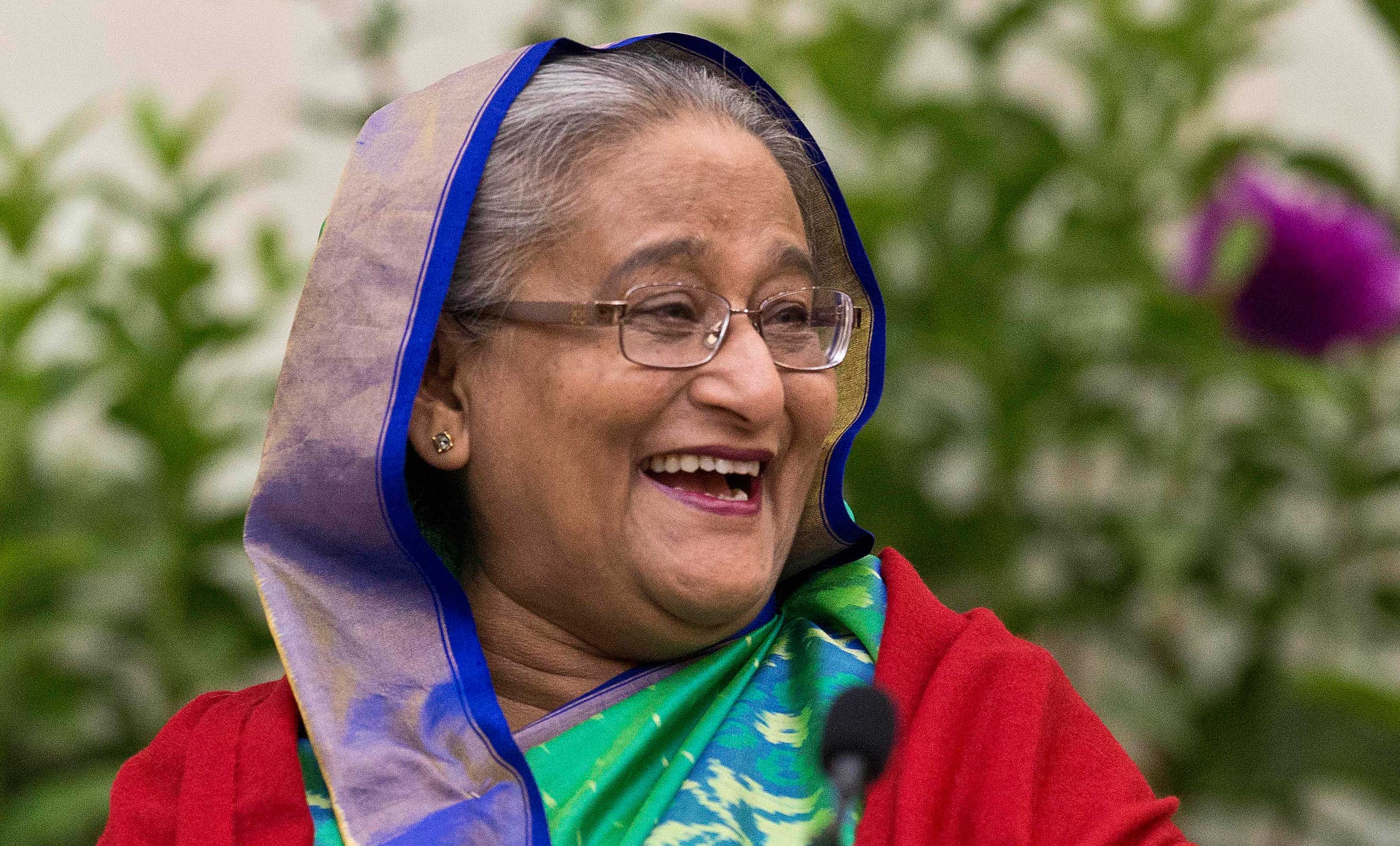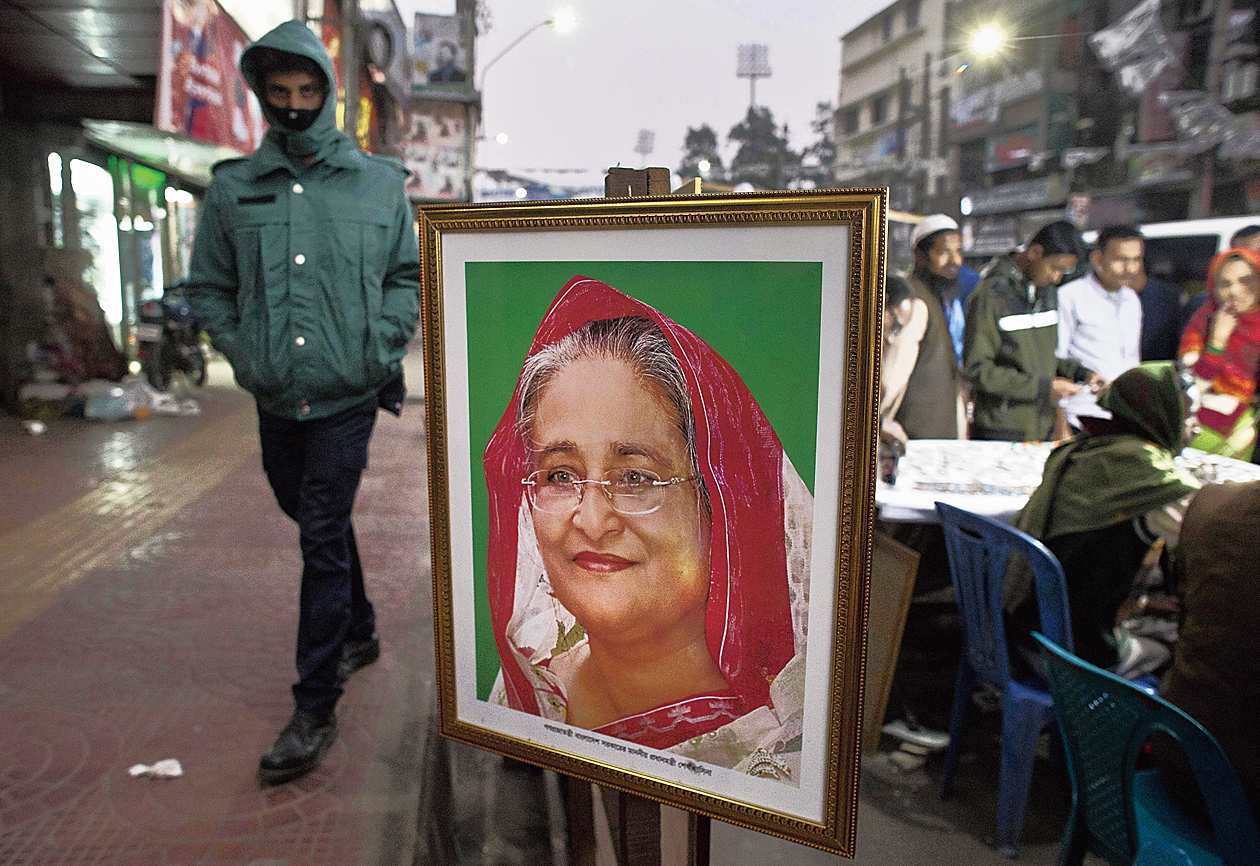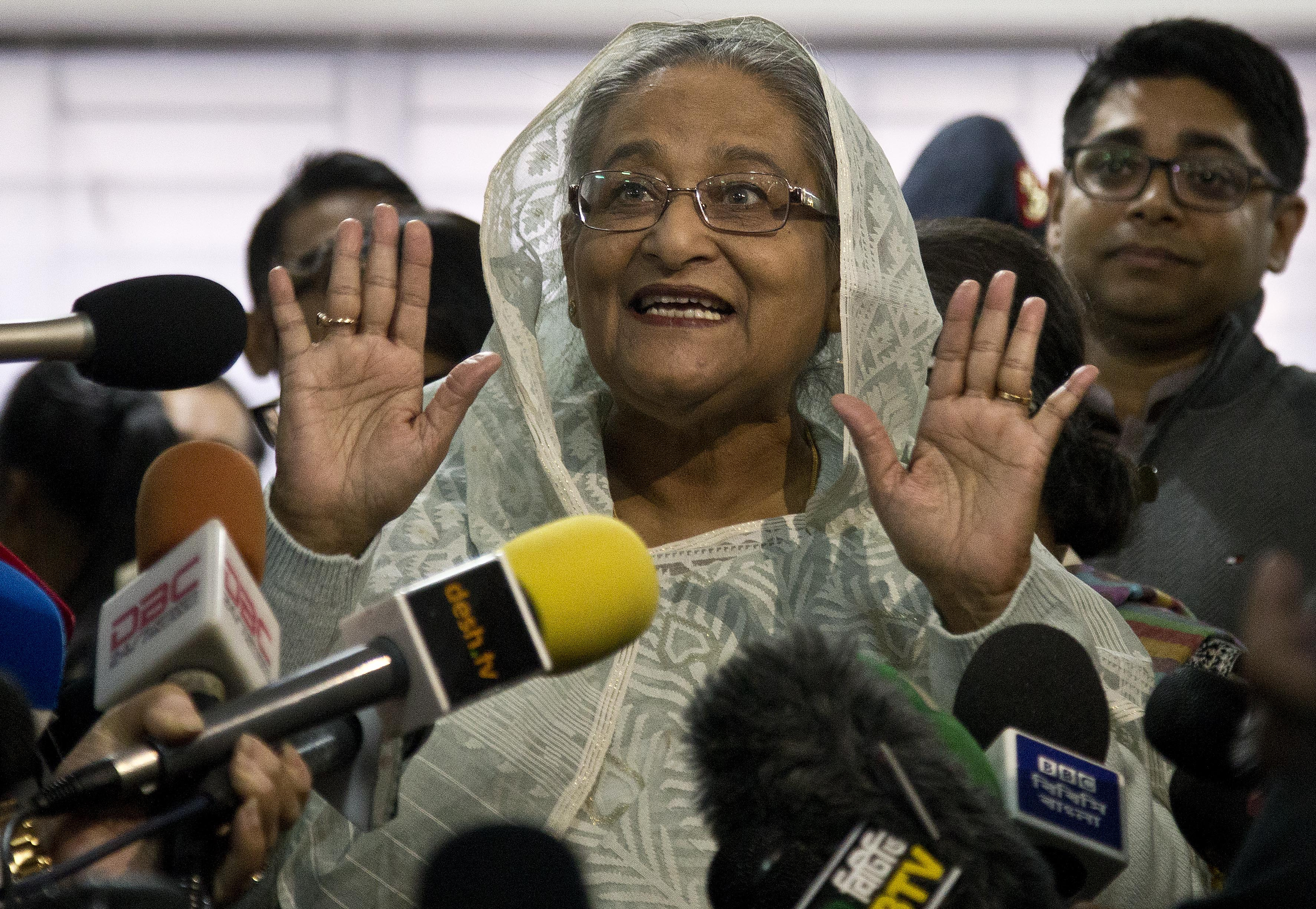Dhaka, one of the largest and most densely populated cities in the world, bore all the signs of an election hangover on the first day of 2019. Two days after Election Day 2018, which the Sheikh Hasina Wajed-led Awami League swept by winning 96 per cent of the seats, the roads remained empty and the eateries awaited customers.
The hangover will last for a couple of days and once the ruling party operatives, who worked overtime in the run-up to the polls, make up for the lost sleep and common people are satiated with the dissection of the poll results, Dhaka will return to normal life with bumper-to-bumper traffic and packed-to-capacity eateries.
Then, there will be a round of excitement in the run-up to the swearing in of Wajed who will assume the prime minister’s office for the fourth time. That too will be over shortly. The Opposition parties, after a humiliating poll debacle, will try their best to draw attention to the ‘rigged election’ through another round of news conferences and fresh appeals in the courtrooms over the next few days. But by mid-January, it is all set to be business as usual in Bangladesh and the prime minister, Wajed, will be firmly in the saddle. The scenes of the political theatre in Bangladesh over the next fortnight are unlikely to deviate much from the above script.
The question, however, is — what next? And the interest — both local and global — will be on what will unfold thereafter as Wajed has returned to power riding on a major pledge: by 2041, Bangladesh will become a developed country with zero poverty.
Most people in Bangladesh, who benefited from the economy’s remarkable growth story in the last decade, think that the targets are achievable. The huge mandate in favour of Wajed has also made it clear that her countrymen believe that she can take Bangladesh to higher levels of prosperity.
Delivering on the promises will, however, be easier said than done as it will hinge on several factors like building institutions and ushering in both administrative and political reforms.
The first sign of whether Wajed is game for change will come from the team that she picks to realize the dream of making her country ‘Sonar Bangla’. While selecting candidates for the election, Wajed did not experiment much. She kept the old horses in the fray although some of them were tired and had a tarnished image.
With such a resounding mandate, Wajed can afford to create a new team, as she will need intellectual capital to meet the lofty targets. While she has brought Bangladesh this far with an ability to micromanage things, there is little doubt that a system driven by one person has its shortcomings.
A new team can go a long way in changing the rules of the game in Bangladesh. The constraints on the business side — cost overrun, time overrun, inflated project cost and a well-entrenched system of commissions — have to be removed to give a big push to the economy. While Bangladesh’s growth story is stellar, it has, at least till now, been driven by the readymade garment sector, remittances sent by a workforce from abroad and huge government investment in infrastructure.
To address the problem of unemployment and build domestic capabilities, the focus has to shift to the manufacturing sector. Investments will flow in only if the above-mentioned constraints are done away with. The digital revolution, which has taken telephony to all corners of the country, has to be taken to the next level by developing skills so that more and more youth can be part of the knowledge economy.
The country is also in dire need of political reforms. While the mandate has been resounding for the Awami League in these elections, there is little doubt that the Establishment played a key role in scripting the electoral success story. As the Bangladesh Nationalist Party-led Opposition has had a dismal track record in nation-building and failed to come up with a plan on what it had to offer if voted to power, the entire Establishment — from the armed forces to the civil administration — lent its weight behind Wajed’s Awami League. Besides, the possibility of a backlash in case of a change of guard was so palpable that the BNP-led alliance, which also included the hardline Jamaat-e-Islami, lacked any approval within the administration.
While Wajed has every reason to cherish this victory, she has to remember that the goal of attaining the status of a developed country will remain on paper unless governance is decoupled from politics. She also has to try and remove the authoritarian tag that came her way in the last few months.
The onus of bringing about this change in the political landscape, however, isn’t the sole responsibility of Wajed and her party. The BNP-led Opposition also has its task cut out — it has to go back to the people instead of crying hoarse about electoral malpractice. Reviewing the ties with the Jamaat is also a must. And, finally, the BNP has to work out the cost-benefit analysis of a remote-controlled leadership of Tareq, the son of former premier, Khaleda Zia, from London.












